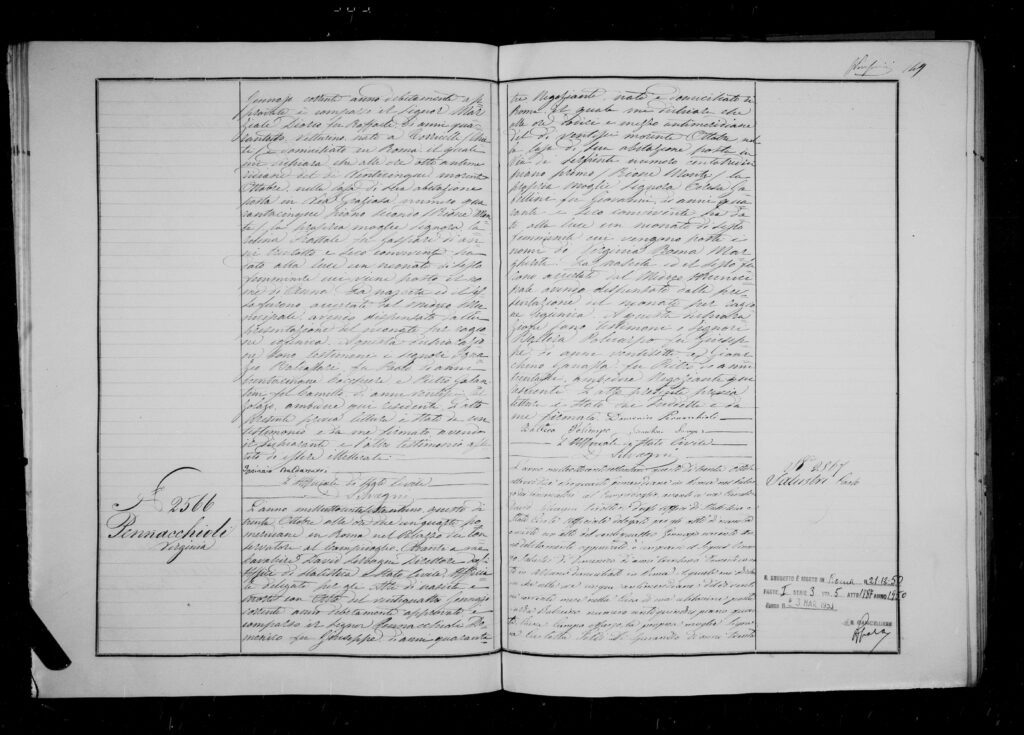Carlo Salutri, Trilussa (1871-1950)
Carlo Alberto Camillo Salustri was born in Rome on 26th October 1871.
The son of Vincenzo, a waiter, and Carlotta Poldi, a dressmaker, he was soon orphaned by his father and became deeply attached to his mother, with whom he lived until her death in 1912.
Despite his lack of inclination for school studies, Salustri showed a keen interest in poetry from an early age, devoting himself especially to composing verses in the Roman dialect.
As early as 1887, his first sonnet, published in the celebrated magazine Il rugantino, bore the signature ‘Trilussa’ at the bottom, an anagram of his surname, which accompanied him for the rest of his life.
His poetry was inspired by the Romanesque tradition, adapting, however, to the themes of the turn of the century, in a light, easygoing manner, never explicitly vulgar. At the same time, alongside his poetic production, he also produced prose, characterised by revisitations of classic and popular fables and the invention of new modern fables.
With the turn of the century, his success also consolidated, making him a poet-commentator, a frequent visitor to the salons and cafés of Rome. During the war period, he distanced himself from the regime, although he was never clearly opposed to it. His more committed poems of a socio-political nature, in which the crepuscular imprint is stronger, also date from this period.
In 1947 he refused the post of mayor of Rome that had been offered to him.
Three years later, he was appointed life senator by the President of the Republic, Luigi Einaudi.
He died in Rome on 21th December 1950.
You can consult the birth certificate on the Ancestor Portals: Archivio di Stato di Roma > Stato civile italiano > Roma > 1871
The original is kept at the State Archives of Rome.
His paper and photographic archive was kept intact by Rosa Tomei, the woman with whom he cohabited in the last twenty years of his life and with whom he formed an emotional and working partnership. Today, Trilussa’s archive is kept at the Museo di Roma in Trastevere.
For more on the figure of Trilussa, see the entry in the Dizionario Biografico degli Italiani edited by Gabriele Scalessa.

